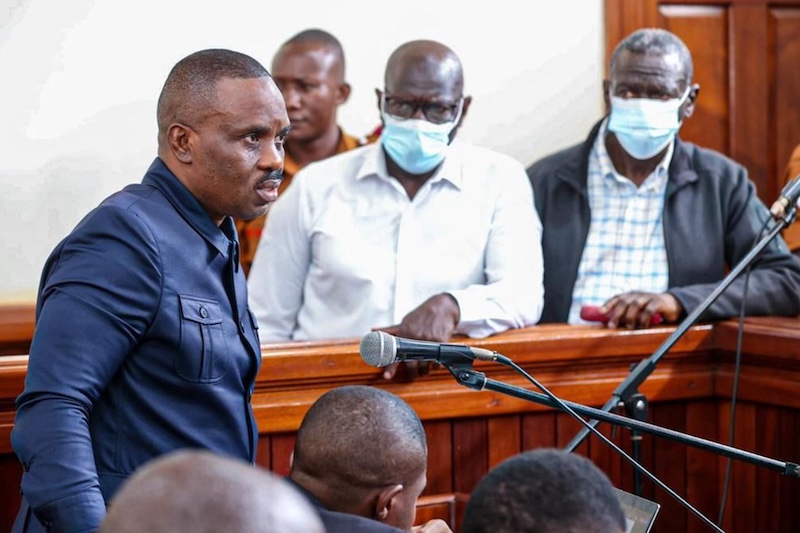
The continued incarceration of Dr. Col. Kizza Besigye and his political aide, Obedi Lutale, raises troubling questions about the integrity and independence of Uganda’s judiciary.
Their case is emblematic of a broader crisis where the rule of law appears to bend under the weight of political influence, leaving citizens, especially those in opposition, feeling vulnerable and unjustly targeted.
Since their abduction from Nairobi Kenya in November 2024 and subsequent arraignment before the General Court Martial, the legal journey of Besigye and Lutale has been fraught with inconsistencies and blatant disregard for judicial fairness.
Initially charged with unlawful possession of firearms, their case evolving into charges of treason underscores a troubling trend: the weaponization of legal processes against political opponents.
The Supreme Court’s landmark ruling in the Attorney General v. Kabaziruka (Constitutional Appeal) case, which sought to restore the jurisdiction of civilian courts over civilians, was a much-needed affirmation of constitutional rights.
Yet, the state’s hasty amendment of the UPDF Act to empower the General Court Martial to try civilians speaks volumes about a government unwilling to abide by judicial rulings. One cannot ignore the numerous legal lapses surrounding their detention.
The requirement for a case to be sanctioned by the Director of Public Prosecutions (DPP) before arraignment was ignored, highlighting a systemic failure in upholding legal protocols.
Instead of being released following the Supreme Court ruling, Besigye and Lutale have been ensnared in prolonged remand, raising serious questions about whether they are perceived as innocent until proven guilty.
Article 28(3)(a) of the Ugandan Constitution guarantees this presumption, yet the judiciary’s handling of their case suggests a troubling presumption of guilt. What is particularly concerning is the judiciary’s apparent collusion with the state, reflected in their repeated denials of bail under questionable pretexts.
Justice Rosette Kania’s claim that their release could interfere with investigations implies an unsettling bias, suggesting that the mere status of being a political figure warrants a departure from equitable legal treatment.
Similarly, Justice Emmanuel Baguma’s refusal to grant bail due to the perception that the 180-day remand requirement was not met demonstrates an alarming lack of adherence to procedural justice.
The repeated denial of bail, coupled with the shifting grounds for these decisions, suggests that the judiciary may be prioritizing the state’s interests over the rights of individuals. Such an approach undermines public trust in the legal system, as individuals like Besigye are seen not as presumed innocent parties, but as threats to the existing political order deserving of draconian measures.
As the judiciary faces these severe criticisms, it becomes imperative that it reassesses its role as a neutral arbiter and protector of the law. The erosion of public trust can have far-reaching consequences, not only for those directly affected but for the health of democracy in Uganda as a whole.
A judiciary that lacks independence becomes complicit in the broader societal injustices that stem from unequal application of the law. In light of these developments, it is vital for the judiciary to reaffirm its commitment to fairness and impartiality.
This includes recognizing the plight of political prisoners and ensuring that they are treated with the dignity afforded to all citizens under the law. Fundamental rights must be preserved, and the presumption of innocence should not merely be an abstract principle but a living reality for everyone who stands before the court.
Ultimately, the judiciary is on trial, and its credibility hangs in the balance. For Besigye, Lutale, and countless others, the promise of a fair and independent judicial system is not just a legal necessity; it is a cornerstone of democratic governance.
The time has come for the judiciary to demonstrate that it is indeed a guardian of justice and not a mere instrument of state power. Without such a transformation, trust in the rule of law will continue to erode, leaving a gaping chasm in Uganda’s commitment to democracy and human rights.



